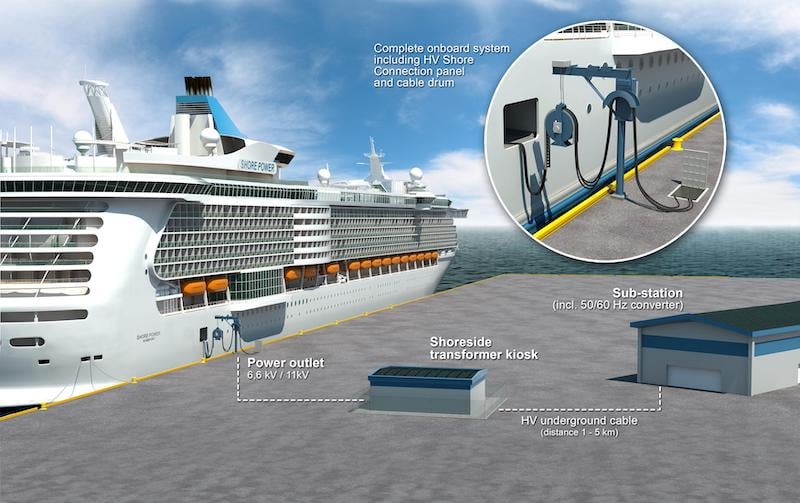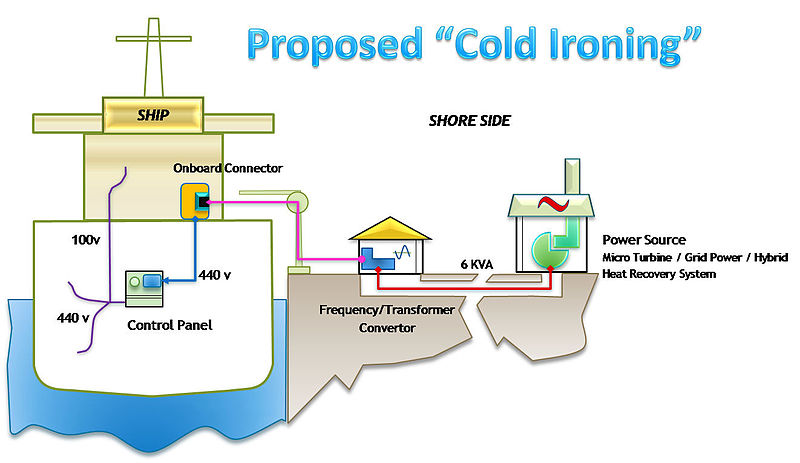As cruise lines and other parts of the tourism industry continue to take steps to be better environmental stewards, one of the simplest things that ships and ports can do is to connect to shore side power while in port - and now Germany is making that an even easier decision for cruise lines and shipping companies.
In recent years some ports have restricted ships from burning high-sulfur fuels while in port. While some cruise ships have turbines which are run in port so that they can generate energy while emitting lower emissions than their larger engines, there is another option: Cold Ironing.

What is Cold Ironing?
Cold ironing is a term used for connecting a ship to shore power so that they can turn off their engines. The name actually comes from the days that coal-fired boilers meant trimmers continuously shoveled coal into burners so that power could be generated by steam. Once connected to shore power, they could stop running the boilers and everything would cool down. In more modern times this practice is also popular even when LNG or other low-sulfur generators are available as they may generate undesirable noise pollution.

What is Germany Doing to Incentivize Cold Ironing?
It may be free to plug your phone charger in at the airport, but the energy used by ships, even while docked, is much greater - so ports charge for this energy consumption. Germany however has some of the highest tariffs in the world on some types of energy. This week though, Germany announced that for berthed ships, they'd slash the Renewable Energy Sources Act (German: EEG, Erneuerbare-Energien-Gesetz) surcharge by 80%.
Until this change, the EEG surcharges made it so that shore power was more costly than running alternative generators - whether LNG, low sulfur diesel, or even bunker fuel. So far no effective date has been given for this change, but it's expected that it will increase utilization of shore power, including a number of new cold ironing facilities that have been opening in various German ports. This should be of particular interest to AIDA, the German cruise line owned by Carnival Corp and PLC who has launched AIDANova, the first fully-LNG powered cruise ship in an effort to reduce emissions.
Billy's Take
This is a clear win for everyone. While the EEG intentions are good (to fund various approved clean-energy and cleanup projects), if they are, in this case, acting as a disincentive for an act that has clean environmental benefit, this is the right move. As additional ports do things to encourage companies to reduce their emissions while berthed, it will be interesting to see if others follow suit - especially while additional clean-energy facilities are being built specifically to power port and ship operations.

